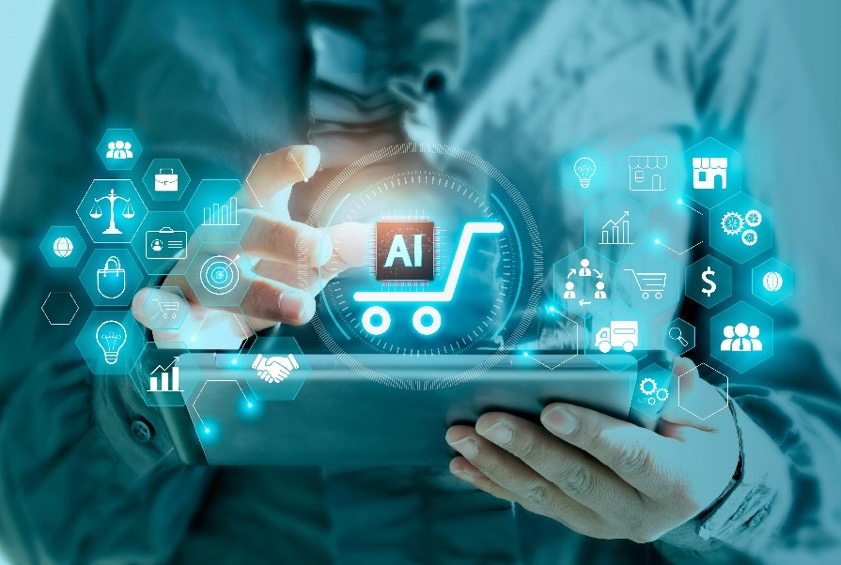Introduction
As technology continues to advance, Artificial Intelligence (AI) will play an increasingly vital role in shaping the future of the food and drink industry. Some ways that AI is driving innovation and efficiency is through the streamlining of operations and optimization of supply chains. This enables food and drink companies to optimize their production processes, reduce waste, and ensure products meet customer needs.

Addressing Sustainability
One of the biggest challenges affecting the food and drink industry across the next decade is inadequate food supplies. This is a result of population growth and the climate crisis. This is leading to increased food waste and shortages. Consumers are aware the food industry is impacted by environmental circumstances. However, it is also a significant contributor to the problem. This is a result of the impact agriculture can have on the planet, and food waste in the production process.
As a result, farming processes must be made more efficient. Artificial Intelligence can facilitate this step toward a more efficient food system. For instance, AI can be used to monitor and predict weather patterns for optimal production. In addition, AI can be used to measure carbon emissions and food waste. This would help implement automated quality control across the supply chain that makes criteria easier to monitor and follow.
Regenerative Farming

AI is predicted to have a significant influence on regenerative agriculture over the next ten years. For example, FMCG Gurus’ consumer insights reveal that 80% of global consumers would trust a company more if they were doing Regenerative farming. The top reason behind this is that a large proportion of consumers consider it better for the environment. While Artificial Intelligence is something that will drive regenerative farming, consumers say this process enhances trust in brands. This highlights that AI not only has environmental benefits but also can shape perceptions of value.
Enhancing Value
During today’s cost-of-living crisis, rising prices are a key concern for consumers. As a result, consumers will be closely seeking promotional offers on products, but many feel that promotional offerings could be personalized. For instance, FMCG Gurus’ market research highlights that 37% of global consumers think retailers could make shopping more affordable by offering customized and personalized promotional offerings suited to their specific needs. The growth of AI can facilitate personalized and customized promotions and offers based on consumers’ specific needs. This will mean that brands and retailers can closely monitor the spending habits and purchasing patterns of consumers. As a result, AI in the food and drink industry could enhance customer satisfaction and brand reputation.
Quality Control
Globalization is associated with many benefits, however, consumers are concerned about extended supply chains. For example, 40% of global consumers would like to hear more information from brands about safety assurance for the handling and manufacturing of products. In addition, consumers are concerned about the hygiene standards of the products they purchase. This concern has heightened during the pandemic due to high levels of information regarding safety standards, and how viruses, germs, and bacteria can be passed on during the distribution of goods. While fear of the pandemic has passed, the long-lasting implication of this is that consumers are highly conscious of the safety and cleanliness of supply chains.
Automated production may alleviate concerns about hygiene, with cleanliness and hygiene standards more easily monitored through technology.